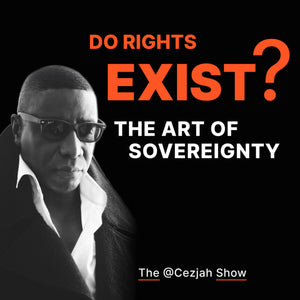Glossary
- Browse Now...
The question, ‘Do moral rights exist?’ addresses some of society’s most contentious debates, encompassing issues such as abortion, positive rights, economic justice, and equality. If moral rights are inherent and universal, they exist independently of human recognition, imposing obligations regardless of consent. Conversely, if they are social constructs, their authority derives solely from collective intentionality and voluntary agreement. This distinction is not merely academic; it fundamentally shapes our understanding of whether rights are discovered or negotiated, inalienable or contingent, objective truths or human-made conventions.
This chapter confronts pressing and polarising questions: Does a fetus possess moral rights, and if so, how do these rights interact with a mother’s autonomy? Are positive rights, such as healthcare and education, moral imperatives or merely revocable agreements? If rights are universal, why do they differ across cultures, and can moral obligations bind those who do not consent? Furthermore, can morality endure in an era marked by ideological fragmentation?
Readers will be challenged to examine the foundations of moral rights, their enforceability, and their legitimacy in a world where values frequently clash. This chapter transcends theoretical exploration; it aims to equip individuals with the intellectual tools necessary to navigate, defend, and critique the moral frameworks that govern rights and responsibilities in an increasingly divided society.
Couldn't load pickup availability
The Art of Sovereignty
Part V - Do Rights Exist?
Introduction
Part V - Do Rights Exist?
- Podcasts
- Summaries

Do Rights Exist? - The Intro
Are rights inherent truths, or are they constructs shaped by power and recognition? In this special episode, we dive into Do Rights Exist?, a compelling chapter from The Love Uncertainty Principle, that challenges long-held assumptions about rights, justice, and power. Drawing from philosophy, political theory, and legal thought, we explore the evolution of rights—from Aristotle’s justice-based ideals to Hobbes’ raw power dynamics and Ayn Rand’s rational self-interest. We unpack the paradox at the heart of justice: rights are meaningless without the power to uphold them, yet power itself is the greatest threat to rights. By critically engaging with these ideas, we question whether rights are discovered or invented, what sustains them, and what it truly takes to create and defend them. If rights are not given or found but made—what does that mean for justice and society?

Do Rights Exist? - The Chat
In this episode, we’re diving headfirst into one of the most fundamental questions of philosophy and political thought—do rights actually exist? We’ll break down the evolution of rights, from Aristotle’s justice-based framework to Hobbes’ brutal realism and Rand’s individualist entitlement. Are rights self-evident, or are they merely social constructs? (Spoiler: they don’t exist in isolation!) We’ll chat about why so many debates over rights—whether about freedom, property, or even life itself—stem from the assumption that rights are inherent rather than invented. If rights are based on obligations, then what determines which obligations are binding? And if morality is just a social contract, does power ultimately determine what’s "right"? Got a burning question about whether rights are discovered or created? Or maybe you’re wondering if laws are just an illusion of moral authority? Tune in as we unpack The Art of Sovereignty and explore whether rights are truly universal—or just a matter of negotiation.

Do Rights Exist? - The Song
Now that you've learned a few things about rights and morality, take a break and enjoy this song.

Thank You for Your Interest!
You’ve successfully signed up to be notified when the next release of The Art of Sovereignty is available. We’re thrilled to share this journey with you and will keep you updated with the latest release information.
Stay Connected
Make sure you don’t miss any updates! Subscribe to our newsletter for exclusive release news, insights from the author, and special content directly to your inbox.
We can’t wait to share the official release of The Art of Sovereignty with you. Happy reading!
 Close
Window
Close
Window

